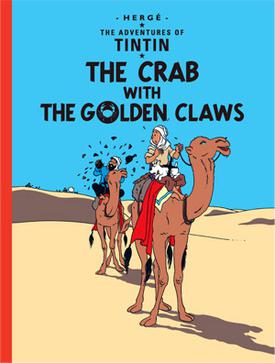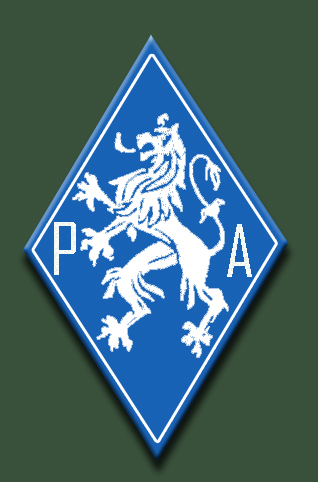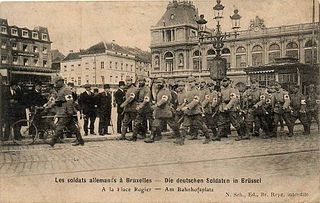
The Crab with the Golden Claws is the ninth volume of The Adventures of Tintin, the comics series by Belgian cartoonist Hergé. The story was serialised weekly in Le Soir Jeunesse, the children's supplement to Le Soir, Belgium's leading francophone newspaper, from October 1940 to October 1941 amidst the German occupation of Belgium during World War II. Partway through serialisation, Le Soir Jeunesse was cancelled and the story began to be serialised daily in the pages of Le Soir. The story tells of young Belgian reporter Tintin and his dog Snowy, who travel to Morocco to pursue a gang of international opium smugglers. The story marks the first appearance of main character Captain Haddock.

Le Soir is a French-language Belgian daily newspaper. Founded in 1887 by Emile Rossel, it was intended as a politically independent source of news. It is one of the most popular Francophone newspapers in Belgium, competing with La Libre Belgique, and since 2005 has appeared in Berliner format. It is owned by Rossel & Cie, which also owns several Belgian news outlets and the French paper La Voix du Nord.

Paris-soir was a French newspaper founded in 1923 and published until 1944 when it was banned for having been a collaborationist newspaper during the war.

The Belgian Resistance collectively refers to the resistance movements opposed to the German occupation of Belgium during World War II. Within Belgium, resistance was fragmented between many separate organizations, divided by region and political stances. The resistance included both men and women from both Walloon and Flemish parts of the country. Aside from sabotage of military infrastructure in the country and assassinations of collaborators, these groups also published large numbers of underground newspapers, gathered intelligence and maintained various escape networks that helped Allied airmen trapped behind enemy lines escape from German-occupied Europe.
La Voix du Nord is a regional daily newspaper from the north of France. Its headquarters are in Lille.

La Libre Belgique, currently sold under the name La Libre, is a major daily newspaper in Belgium. Together with Le Soir, it is one of the country's major French language newspapers and is popular in Brussels and Wallonia. La Libre was founded in 1884 and has historically had a centre-right Christian Democratic political stance. The papers is particularly celebrated for its role as an underground newspaper during World War I and World War II when Belgium was occupied. Since 1999, the newspaper has become increasingly liberal but is still considered more conservative than Le Soir.
Bloed, Bodem, Eer en Trouw was a Flemish neo-Nazi group, created in 2004 from a splinter of the Flemish branch of the international Nazi skinhead organization Blood & Honour.
Frédéric Fonteyne is a Belgian film director. He studied film at the Institut des arts de diffusion in Louvain-la-Neuve. His 2020 film Working Girls was selected as the Belgian entry for the Best International Feature Film at the 93rd Academy Awards.
Raymond De Becker (1912–1969) was a Belgian journalist, writer, and intellectual. He became closely involved in Catholic and anti-parliamentarian politics in the interwar years and is notable as the editor of the daily newspaper Le Soir and a leading exponent of "intellectual collaboration" in German-occupied Belgium during World War II.

The Independent Front was a left-wing faction of the Belgian Resistance in German-occupied Belgium in World War II. It was founded in March 1941 by Dr Albert Marteaux of the Communist Party of Belgium, Father André Roland, and Fernand Demany, another communist. The aim of the organisation was to unite Belgian resistance groups of all opinions and political leanings; nonetheless the only political party that was affiliated as such was the Communist Party. The FI operated a significant propaganda, social and paramilitary organization, in addition to its military and sabotage functions and operated in competition with the larger pro-government Secret Army.

The "Faux Soir" was a spoof issue of the newspaper Le Soir published in German-occupied Belgium on 9 November 1943. It was produced by the Front de l'Indépendance, a faction in the Belgian Resistance, in a satirical style that ridiculed German propaganda. Though it resulted in significant repression, the Faux Soir's embodiment of zwanze, the characteristic folk humour of Brussels, made it an enduring symbol of the Resistance. The incident was the centerpiece for the 1954 film, Un Soir de Joie.
Bossemans et Coppenolle is a Belgian play by Joris d’Hanswyck and Paul Van Stalle. It was first staged in 1938.

Despite being neutral at the start of World War II, Belgium and its colonial possessions found themselves at war after the country was invaded by German forces on 10 May 1940. After 18 days of fighting in which Belgian forces were pushed back into a small pocket in the north-west of the country, the Belgian military surrendered to the Germans, beginning an occupation that would endure until 1944. The surrender of 28 May was ordered by King Leopold III without the consultation of his government and sparked a political crisis after the war. Despite the capitulation, many Belgians managed to escape to the United Kingdom where they formed a government and army-in-exile on the Allied side.

The Armed Partisans was a faction of the resistance in German-occupied Belgium in World War II. The group was affiliated to the Belgian Communist Party. In 1941, many of its members left to join the Front de l'Independance while the rest of the group was undermined in 1943 when almost all the leadership of the group and the Communist Party were arrested by German forces. It was renamed the Belgian Army of Partisans' after the Liberation of Belgium in September 1944.

The German occupation of Belgium of World War I was a military occupation of Belgium by the forces of the German Empire between 1914 and 1918. Beginning in August 1914 with the invasion of neutral Belgium, the country was almost completely overrun by German troops before the winter of the same year as the Allied forces withdrew westwards. The Belgian government went into exile, while King Albert I and the Belgian Army continued to fight on a section of the Western Front. Under the German military, Belgium was divided into three separate administrative zones. The majority of the country fell within the General Government, a formal occupation administration ruled by a German general, while the others, closer to the front line, came under more repressive direct military rule.

Various kinds of clandestine media emerged under German occupation during World War II. By 1942, Nazi Germany occupied much of continental Europe. The widespread German occupation saw the fall of public media systems in France, Belgium, Poland, Norway, Czechoslovakia, Northern Greece, and the Netherlands. All press systems were put under the ultimate control of Joseph Goebbels, the German Minister of Propaganda.

The clandestine press of the French Resistance was collectively responsible for printing flyers, broadsheets, newspapers, and even books in secret in France during the German occupation of France in the Second World War. The secret press was used to disseminate the ideas of the French Resistance in cooperation with the Free French, and played an important role in the liberation of France and in the history of French journalism, particularly during the 1944 Freedom of the Press Ordinances.

Working Girls is a 2020 Belgian drama film directed by Frédéric Fonteyne and Anne Paulicevich. It was selected as the Belgian entry for the Best International Feature Film at the 93rd Academy Awards, but it was not nominated.
This is a page of the events in the year 1943 in Belgium.
Etienne Ugeux was a Belgian journalist.













